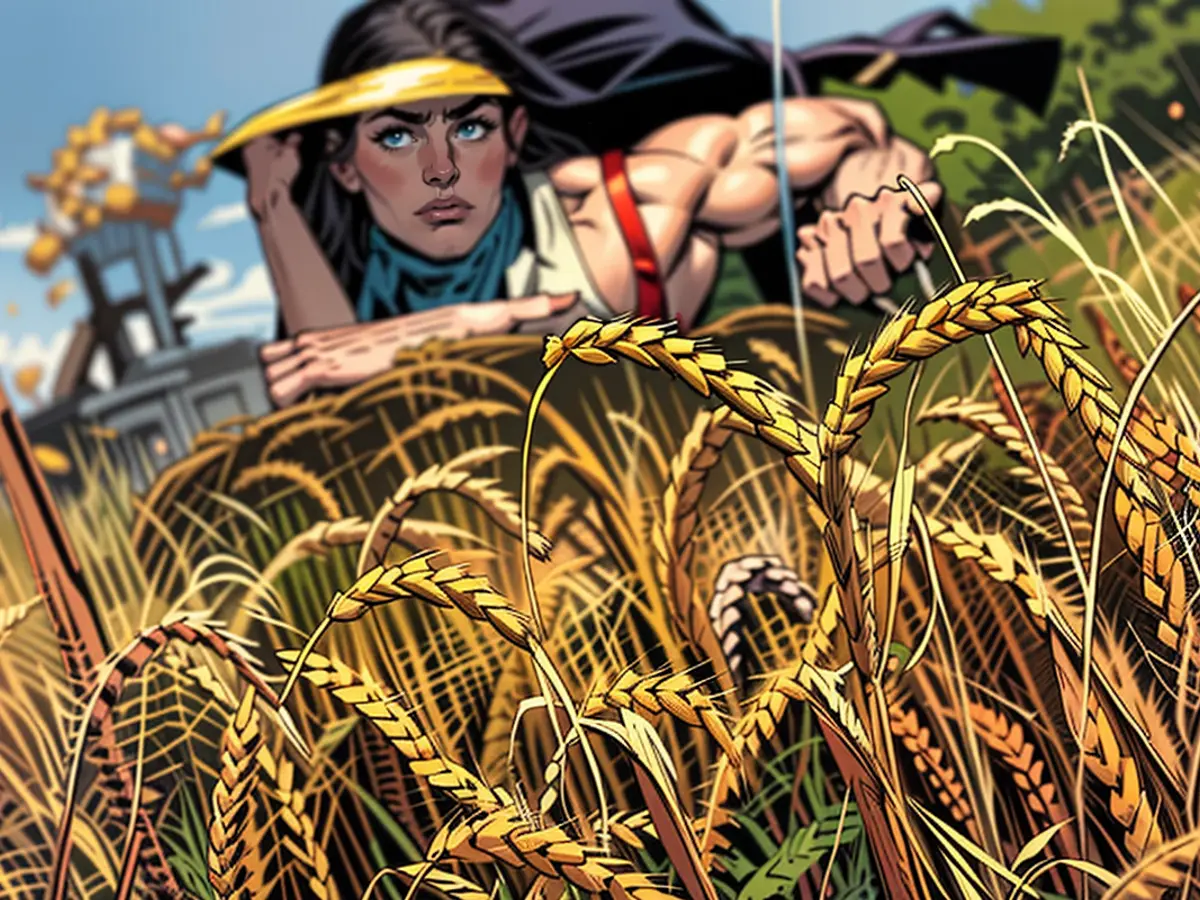In the current farming season, Bavarian farmers are experiencing a drop in their wheat harvest, with a projected yield of just 5.7 million metric tons. This figure represents a substantial 10% decrease compared to the typical average. Additionally, the cultivated acreage has seen a decline of 7.4%.
This year's harsh weather conditions, marked by excessive moisture, have caused unrelenting interruptions during the harvesting process. As a result, some fields remain inaccessible due to saturation, resulting in an uptick in fungal and pest infestations compared to previous seasons.
50% of the Bavarian wheat fields are dedicated to winter wheat. Experts forecast an average yield of 7.16 tonnes per acre for this year, representing a 1% dip compared to the previous year. Conversely, the winter barley yield is anticipated to shrink to around 6.07 tonnes per acre, marking a notable 14% decrease compared to the yield from the previous year. However, the projected yield for spring barley takes a turn, with an expected increase of 31% to 5.47 tonnes per acre.
The European Union may need to supplement its wheat supply by importing more wheat from foreign countries, given the lower yields in Bavaria. As a member of the European Union, Bavaria's reduced wheat production could potentially impact the union's overall wheat supply.
For further reading:
Insightful details:
Adverse weather conditions have played a significant role in the decline of wheat yields this season, with the south of Europe experiencing drought and the north and west being hit by excessive wetness. These unfavorable climate conditions, coupled with export quotas and strong competition from Black Sea wheat suppliers, could curb availability within the European Union, further impacting Bavaria's wheat output. Russia, a major wheat producer, is also grappling with poor winter crop conditions, thereby potentially affecting the overall wheat supply within the EU.








